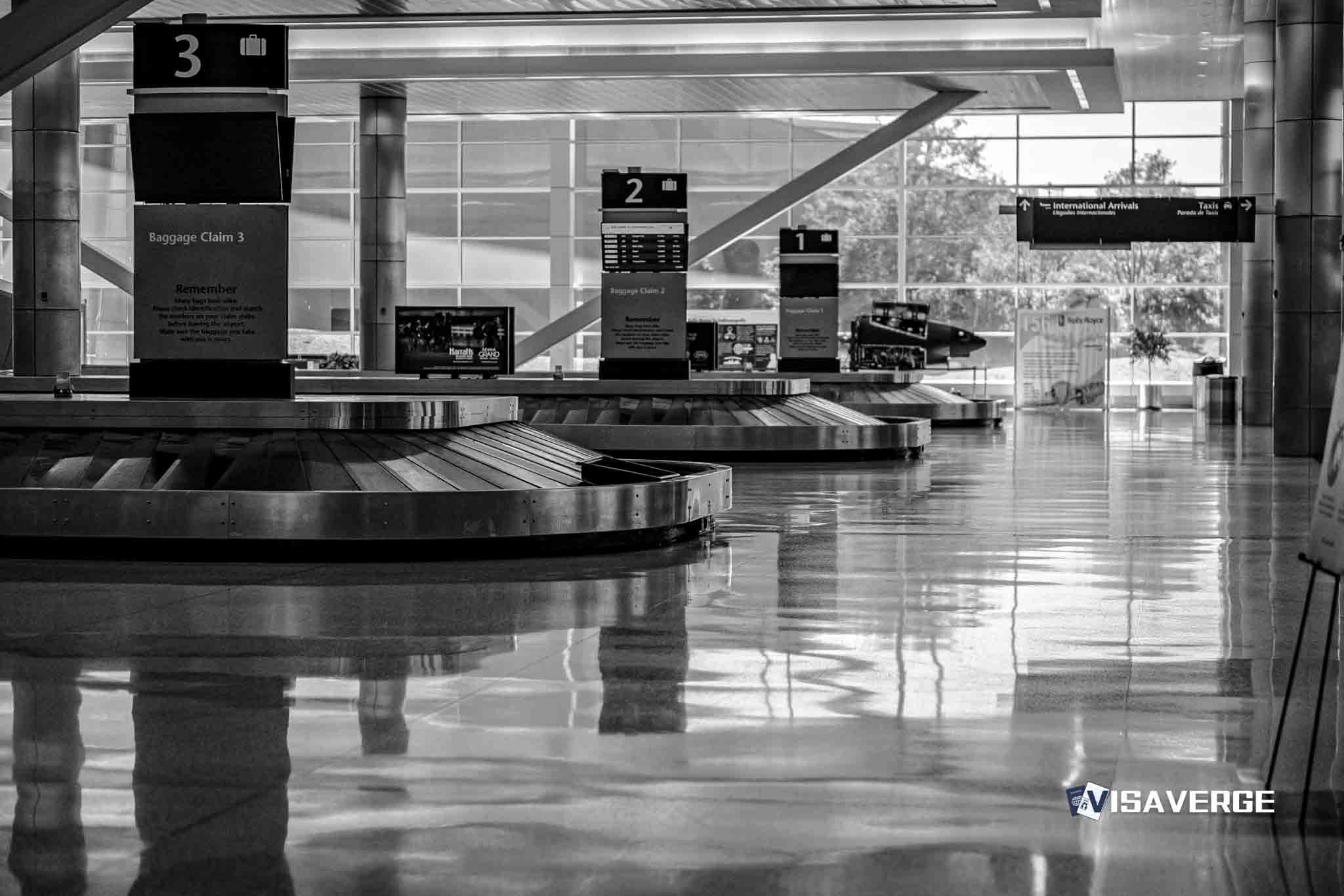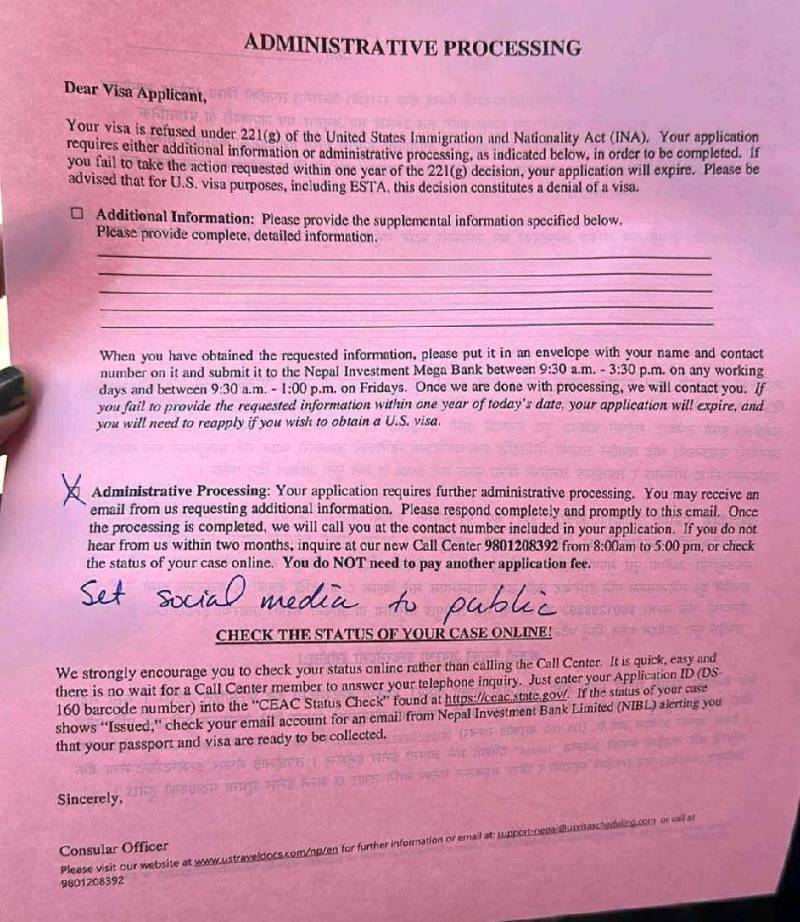(BANGLADESH) Hundreds of IRA factory workers swept up in immigration raids this summer have already been deported, with authorities confirming that removals accelerated over the past week and that scores of detainees remain in custody awaiting case reviews and appeals.
As of September 9, 2025, the Ministry of Interior says over 320 individuals have been repatriated following expedited proceedings tied to alleged visa fraud and labor abuses at International Robotics Assembly (IRA) plants in the industrial corridor outside Metro City. Officials say about 180 detainees are still held pending further decisions.

Nationalities, family impacts, and conditions in detention
The Department of Immigration and Border Protection (DIBP) issued a formal statement on September 8 confirming the deportations and providing a nationality breakdown: most deported people were from Bangladesh, Nepal, the Philippines, and Vietnam, with smaller groups from Myanmar and Indonesia.
Families in Bangladesh report that many workers borrowed heavily to pay recruiters before leaving home and now face return with debts and no income. Deported workers told relatives they were moved in groups and had only brief access to phones before flights. Those still detained describe crowded, dormitory-like units and a fast timeline for hearings.
NGOs and embassy officials have raised welfare concerns:
– Embassy protests from the Philippines and Bangladesh cite due process and welfare worries.
– The Nepalese ambassador on September 3 called for a moratorium on deportations until an independent review is completed.
– Human rights groups say detainees face poor access to legal counsel and report mistreatment in detention.
Government position and resources
Government officials defend the pace of removals. Minister of Interior Dr. Lila Rahman said the state is “committed to upholding the rule of law and protecting the integrity of our immigration system,” adding that those found out of status “will be subject to removal,” while embassies are being consulted to ensure due process.
DIBP Director Samuel Ong said the agency has “increased resources for case review and deportation logistics” to process cases efficiently while meeting international obligations. The DIBP’s public resources and contact details are available on the Department of Immigration and Border Protection website: http://www.dibp.gov.
Origins of the raids and allegations against IRA
The raids began on June 24 after months of investigation into claims that IRA employed large numbers of foreign nationals with expired, forged, or otherwise invalid visas. Authorities also point to suspected:
– Wage theft
– Unsafe working conditions
– Possible human trafficking tied to third-party labor brokers
Coordinated operations involving the Ministry of Labor and local police initially detained more than 500 workers. Prosecutors are investigating criminal and civil actions against IRA and associated brokers.
Fast-track legal framework in force
Officials say removals are being carried out under Emergency Order 2025-14 (effective July 1, 2025), which allows expedited removal in national security cases or large-scale labor violations. Key legal timings and safeguards include:
- Hearings within 7 days of detention under the emergency order — a timeline rights groups say is too short.
- Foreign Nationals Protection Act (Amended 2024, effective January 2025) — requires immediate consular notification and access.
- Ministry of Justice’s Directive 2025-22 (August 2025) — restricts government-funded legal aid for mass enforcement detainees except for minors or recognized trafficking victims.
NGOs and legal scholars argue these rules may undermine meaningful access to counsel and adequate screening for trafficking or asylum claims.
Typical deportation process (government guidance)
Based on government guidance and interviews with lawyers and advocates, the process generally follows five steps:
- Detention and initial screening at designated facilities, checking for trafficking or asylum red flags.
- Consular notification within 24 hours, followed by consular access.
- Expedited hearings within 7 days, with limited legal aid unless the detainee is a minor or identified as trafficked.
- Issuance of removal orders for those found in violation.
- Group repatriation flights arranged by DIBP with escorted transfers and consular handovers on arrival.
Officials say each step meets legal standards and international duties; NGO monitors warn errors are likely in mass operations and that victims may not speak up about broker threats, debt bondage, or coercion.
Legal, economic, and diplomatic fallout
Policy and enforcement shifts are drawing scrutiny:
- IRA faces potential fines exceeding $12 million and possible loss of operating licenses.
- Other employers in the industrial corridor are conducting internal audits; several labor brokers are under official review.
- Labor economists predict possible short-term labor shortages and higher compliance costs, but some expect stronger compliance to reduce future risk.
Diplomatic and sending-country impacts:
– Rising diplomatic tensions are possible.
– Sending states are pushing for stronger bilateral labor agreements and recruiter licensing reforms.
– Embassies have set up hotlines for families (see contact list below).
Humanitarian and family consequences
Analysis by VisaVerge.com highlights sudden job loss and ripple effects on families who relied on remittances for food, housing, and medical care. Community advocates in Bangladesh report:
– Cases of family separation: parents deported while spouses and children remain abroad without clear guidance on reunification.
– Returnees facing debt and potential blacklisting from future overseas employment.
Advocates stress the need for wage recovery and broker accountability. The Ministry of Labor is reportedly auditing wage records, though no timetable for findings has been released.
Practical advice for detainees and families
Legal and consular recommendations:
– Keep all contracts, payment receipts, and contact details for brokers and supervisors.
– Embassy and consular officials recommend immediate requests for interpreter support and clear statements about any threats, debts, or coercion linked to recruitment.
– Rights groups advise documenting: when the worker was detained, which site, communications with supervisors, and names of brokers.
Contact hotlines:
– Philippine Embassy: +1-800-555-PHIL
– Bangladesh Embassy: +1-800-555-BD
– Nepal Embassy: +1-800-555-NPL
– DIBP 24-hour line: +1-800-555-IMMI
– Ministry of Labor hotline: +1-800-555-LABR
Officials urge callers to provide full names, birthdates, and factory site information to speed consular checks.
Policy proposals and legislative debate
Lawmakers plan debates on new protections in October 2025. Proposals under discussion include:
– Clearer screening rules for trafficking indicators
– Guaranteed interpreter access during interviews
– Emergency legal aid funds triggered when more than 50 foreign nationals are detained at once
Diplomats report bilateral talks with Bangladesh, Nepal, the Philippines, and Vietnam are underway to consider updated labor agreements and recruiter licensing reforms.
Local responses and employer guidance
Back in Bangladesh, local groups are organizing small grants and job counseling for returnees while pushing for wage recovery and broker accountability. Economists warn the sudden loss of remittances will strain households and slow village-level spending.
For employers, recommended compliance steps include:
– Clean up recruitment chains and ban sub-agents
– Invest in status checks and onboarding record-keeping
– Run regular payroll audits
– Maintain multilingual worker hotlines and transparent fee structures
– Rewrite vendor contracts with penalties for document fraud
Consultants say these measures can reduce long-term risk for both workers and employers.
Calls for documentation and monitoring
Rights groups urge families and community leaders to document what happened: even short notes about detention timing, site location, supervisor contacts, and broker names could matter for reviews or remedies.
For those still detained, consular officials recommend:
– Requesting interpreter support immediately
– Clearly reporting threats, debts, or coercion related to recruitment
Outlook
The process remains fluid. Authorities plan more audits across the industrial corridor, and the IRA case could set precedents for future mass enforcement actions.
For now:
– Hundreds of IRA factory workers have been deported
– Hundreds more remain detained
– The country is debating how to balance border control with worker protection in one of the most complex labor cases in recent memory
Key takeaway: careful documentation, consular engagement, and independent review mechanisms will be central to ensuring due process and identifying trafficking or protection claims amid fast-track removals.
This Article in a Nutshell
By September 9, 2025, authorities repatriated more than 320 workers following immigration raids at IRA manufacturing plants; around 180 detainees remain. The operations followed months of investigation into alleged visa fraud, wage theft, unsafe conditions and possible trafficking connected to brokers. Government officials defend expedited removals under Emergency Order 2025-14, citing rule-of-law and increased DIBP resources, while NGOs and embassies warn that seven-day hearings and restricted legal aid risk inadequate trafficking screening and due process. IRA faces investigations, substantial fines and potential license loss. Lawmakers plan October debates on enhanced protections, and diplomats press for bilateral labor agreement reforms. Key recommendations emphasize documentation, consular engagement, interpreter access and independent reviews to protect vulnerable detainees.












